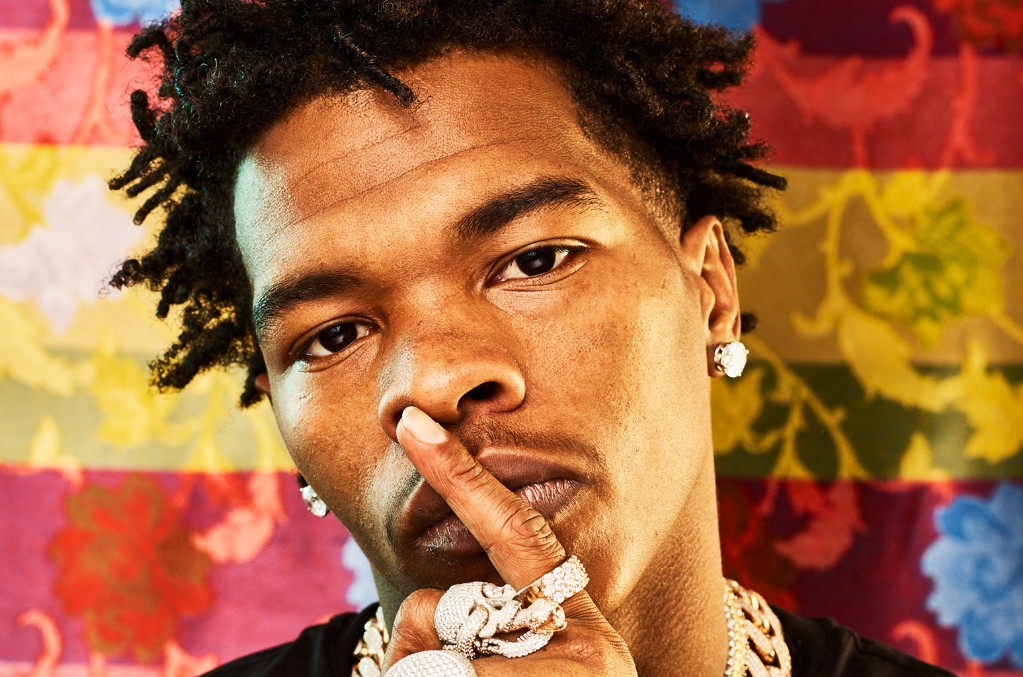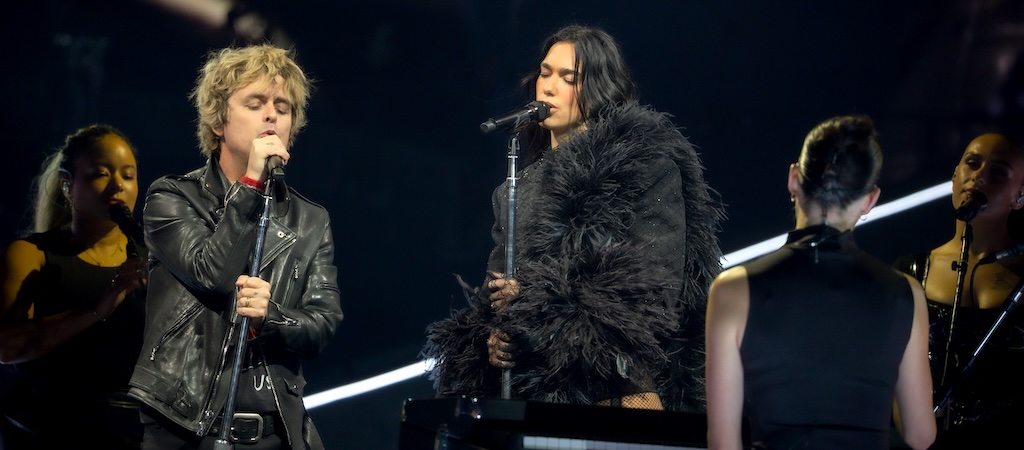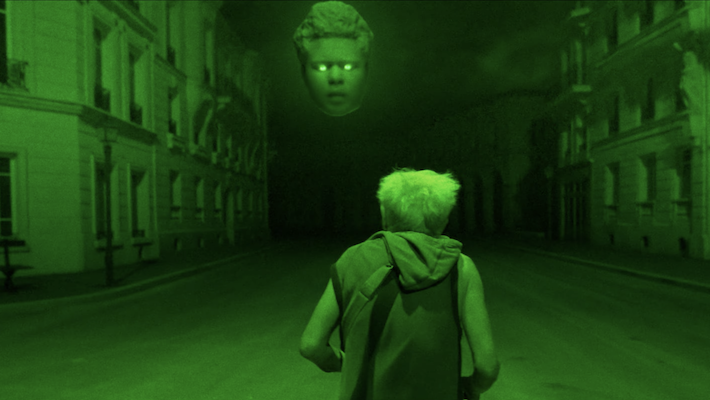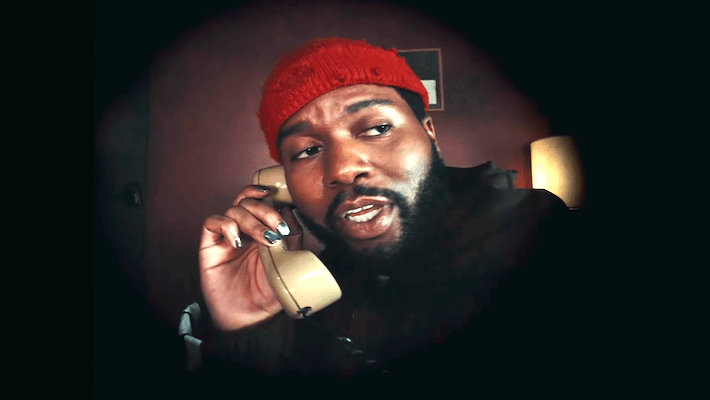It’s his turn, for sure. This week, Lil Baby’s My Turn takes its third lap at No. 1 on the Billboard 200 albums chart — well over three months after the set’s official debut — making him just the third artist after The Weeknd (After Hours) and Roddy Ricch (Please Excuse Me For Being Antisocial) to spend three weeks on top in 2020.
As much success as he’s finding on the albums chart, the rapper born Dominique Jones is having nearly as big a run on the Billboard Hot 100 as well. This week, he scores his highest-peaking hit on the chart to date with the No. 3 debut of “The Bigger Picture,” a topical anthem released in the wake of George Floyd’s killing and the subsequent worldwide protests.
Will the song end up Baby’s biggest hit of the summer? And has the rapper pulled ahead of the pack so far in 2020? Billboard staffers answer these questions and more below.
1. My Turn was already an obvious triumph with its No. 1 debut week and generally positive fan reception. On a scale from 0 to 5 Babys, how big a deal do you think it is for Lil Baby that it’s returned to No. 1 on the Billboard 200 for two weeks over three months later?
Josh Glicksman: [Extremely LeBron James voice] Not two, not three, not four. Sign me up for all five Babys (Babies?)! I think the knee-jerk, downplayed reaction would be to say that there currently isn’t the usual influx of music — both due to the ongoing pandemic and industry-wide pauses in the wake of the killing of George Floyd by police, and subsequent conversations about how the business needs to better support its Black voices. But even with a deluxe release and a lengthy tracklist, there are plenty of other months-old major releases that listeners could be pushing back to the top of the chart right now. It’s no coincidence that people are, uh, turning back to My Turn.
Carl Lamarre: I’m going to say 4. It’s impressive being that the album came out back in March and continues to dominate the 200. Consistency is a lost art in 2020 in terms of chart success, and so far, Baby, Roddy Ricch, and Lil Uzi Vert have proven to be savants in that area, defying every obstacle towering in their way. His climb back to the summit certainly cements him as a leading candidate for the voice of the new generation.
Jason Lipshutz: I’d give it 3 Babys. My Turn is spending multiple weeks at No. 1 three months after its release due to a particularly quiet period of album releases, but the fact that My Turn is doing so — instead of more recent No. 1 albums by household-name artists like Lady Gaga, Future and The Weeknd — represents a strong indicator of Lil Baby’s newfound commercial might, and his latest project’s staying power. The actual accomplishment is not that groundbreaking to me, but maybe it’s the type of win that will help people understand how huge Lil Baby has become.
Andrew Unterberger: At least 3.5 Babys. When you’re going to No. 1 on the albums chart for multiple weeks nearly four months after your album’s initial release — even in a pair of slow release weeks — that basically means you’re set. It’s not like My Turn‘s return to No. 1 is aided by new deluxe edition tracks, or one track on it going unexpectedly viral: America just really, really loves streaming Lil Baby right now. Imagine if he’d tacked on “Bigger Picture” as a bonus cut.
Christine Werthman: This album has been on such a journey. The 20-song original came out Feb. 28 and debuted at No. 1 on the March 14 chart. Then Lil Baby added six songs for a deluxe edition (an ever-more-common practice for hip-hop artists in the streaming era, as my colleague Jason Lipshutz will tell you) on May 1, which kept it top of mind (though not quite top of chart — in the top 10, at least). Now it’s back for two more weeks at No. 1, the latter of which comes concurrently with the release week of the new “The Bigger Picture.” A third week atop the Billboard 200 for any artist is an achievement, but for an album that’s already been out for more than three months? That’s a big deal. I’ll go for 4 Babys. Why not 5? I want to leave room for growth in case My Turn keeps hanging on.
2. Many were surprised to see Lil Baby come with a song as timely about current events as “The Bigger Picture” — though others have pointed out it really shouldn’t have been so unexpected. How good a job do you think “The Bigger Picture” does at actually capturing the bigger picture?
Josh Glicksman: Given the vast number of factors that feed into the actual bigger picture, it’s hard for Lil Baby to capture all of it in “The Bigger Picture.” That said, he provides powerful insight into the racial injustices that so many Black people have experienced on such a regular basis throughout the song with raw lyricism such as, “I see blue lights, I get scared and start running/ That s–t be crazy, they ‘posed to protect us.” And, as the question notes, it shouldn’t be so unexpected. This moment in history calls for leaders, and Lil Baby is making sure to use his platform to the best that he can: “Every video I see on my conscience/ I got power, now I gotta say something.”
Carl Lamarre: What’s so compelling about “The Bigger Picture” is that it encapsulates the thoughts of every Black man searching for answers in America. And guess what? It comes from maybe the least expected star MC. Since J. Cole tanked on his opportunity to illustrate our plights, Baby swoops in and does so with grace and valor. Lyrically, he’s nowhere near Kendrick or Cole, but his earnest attempt in sketching “The Bigger Picture” speaks volumes to his character and his responsibility as a top-tier rapper.
Jason Lipshutz: We’ll get to its major chart debut in a second, but I think “The Bigger Picture” has resonated because it captures the tone of this historic moment so well. The song mixes fury and frustration at systemic racism and the police brutality existing within it, but ultimately it wants to move forward and work toward some semblance of progress (“It can’t change overnight, but we gotta start somewhere,” goes the key line in the chorus). Out of the many powerful protest songs that have been released over the past month, “The Bigger Picture” feels the most emblematic of the national mood.
Andrew Unterberger: Though I certainly understand why the experts are saying that it undersells what Lil Baby’s already accomplished as an artist to act shocked that Lil Baby wrote such an effective protest (or at least protest-adjacent) song, I’d be lying if I said I saw it coming. He’d proven an adept songwriter and emotive performer when discussing his own experience, but his ability to go wide with his empathetic, urgent message on “The Bigger Picture” while also maintaining his own personal perspective — and not coming off as the least bit preachy — is pretty stunning.
Christine Werthman: I was initially surprised to hear this song from Lil Baby, only because I didn’t associate what I’d heard on My Turn with what came out on “The Bigger Picture.” But it served as a powerful reminder that after the murder of George Floyd, everyone is paying attention, and you don’t have to be thought of as a political artist to have been impacted or to have something to say — and Lil Baby certainly does. Protests, police brutality, systemic racism, poverty and Baby’s personal experience all come into play here. But there’s still, somehow, room for hope and change in the chorus with his insistence that “we gotta start somewhere.” This song not only captures the big picture of the moment, but goes even wider with its lens to show where we could be headed.
3. “The Bigger Picture” debuts at No. 3, Lil Baby’s highest placement on the chart to date. What do you think the debut says the most about — how good the song is, how big a star Lil Baby is, or how vital protest music is at this point in 2020?
Josh Glicksman: This isn’t the definitive answer you’re looking for, but I think it’s a combination of all three, to be honest. Lil Baby’s star gets bigger with each passing release — sure, it’s a different era with streaming, but how many people realize that he now has more Hot 100 hits than both Prince and Paul McCartney? The song is immaculate, too, with its poignant lyrics and mesmerizing, scaling piano keys in its production. And finally, as we’ve already seen, protest songs have experienced huge streaming increases over the past month, including DaBaby’s Hot 100-topping “Rockstar,” which featured a Black Lives Matter remix.
Carl Lamarre: I’m leaning on the first two. I might be skating on the lines of hyperbole by saying this, but Baby’s growth right now reminds of reigning NBA MVP Giannis Antetokounmpo. We knew Baby was capable of superstardom, but to see him eclipse expectations this early on in his career speaks to his beastly work ethic. He embodies the adage hard work pays off because he’s always in the studio, refining his game like the Greek Freak. People recognize his growth and are rewarding him with streams.
Jason Lipshutz: The combination of the song’s urgency and Lil Baby’s star power ensured a pretty big debut, although a No. 3 bow on the Hot 100 is pretty remarkable for a song about racial injustice. Part of the appeal of “The Bigger Picture” is that it doesn’t feel like a lecture — Lil Baby crafted an honest, personal examination of our current social crisis while still abiding by the structure and sound of his biggest hits. This was a perfect storm of songwriting, personality and execution.
Andrew Unterberger: An unforgivable cheat, but I still gotta say that it really is all three. “The Bigger Picture” is a great song, and worthy of such a splashy debut — but no matter how good it is, it wouldn’t have a shot at a top five bow coming at a less-explosive moment in American history or from a less of-the-moment rapper. It’s the ideal combination of rapper, song and timing, and that’s why it’s elevating Lil Baby to a new level in the eyes of so many.
Christine Werthman: It’s all connected. Other great protest songs have come out recently but not charted as well, so take that as an indicator that this is a good song. Lil Baby is relatively new, but he’s been holding his own on the charts now for months, a testament to his popularity before this song hit. Lastly, the timeliness of the song’s subject matter makes it essential listening. Hip-hop is our most important genre, so to have a new leader in the field use his platform to talk about racism and social injustice is something a lot of listeners can get behind — whether they were fans of Lil Baby already or just looking for a protest song and stumbled upon this gem.
4. “The Bigger Picture” is just one of three rising Lil Baby songs currently in the Hot 100’s top 40. Between this, “We Paid” (No. 27) and “Emotionally Scarred” (No. 37), which do you think is going to end up being the signature Lil Baby hit from this summer?
Josh Glicksman: I guess that really depends on the definition of signature, but regardless, I’ll go with “The Bigger Picture.” I think it’ll end up as Lil Baby’s highest-charting hit of the summer, as well as his most impactful one. Of course, “Emotionally Scarred” charting in the top 40 in its 16th week on the Hot 100 is nothing to sweep under the rug, but as previously mentioned, protest music is extremely vital right now — and that’s also being reflected on the charts.
Carl Lamarre: I gotta go with “Emotionally Scarred.” From the get-go, I knew that song was a heater and would be the one to rope Baby into the role of superstardom. He smothers the competition with IG quotables, humblebrags, and financial probity. Baby’s glow-up is one of the best hip-hop stories of 2020, and this song represents every inch of that growth.
Jason Lipshutz: “Emotionally Scarred” has really grown on me and I now consider it one of the most complete hip-hop singles of the year, but it’s got to be “The Bigger Picture,” right? Nailing a protest song like this in terms of content and chart impact is too unique of an accomplishment to overlook. My Turn has become a triumphant marker in Lil Baby’s ascent, but “The Bigger Picture” is something even more special, and may very well be looked upon as a watershed moment in his career as an A-list artist.
Andrew Unterberger: Wrote about this last week, but I’m increasingly convinced that “We Paid” is gonna be the one. The hook is a brain-sticker, the energy is infectious, and Baby’s chemistry with Detroit co-star 42 Dugg is like Trae Young and John Collins. But the really impressive thing about the rapper’s year is that even if “We Paid” is the banger that owns the clubs — well, the car stereos anyway — all summer, there’s still room for “Emotionally Scarred” to be the song that fans grow the deepest personal connection with, while “Bigger Picture” becomes the one that best encapsulates the historical moment. Not a lot of rappers having hits that can do all three at the moment.
Christine Werthman: “The Bigger Picture.” I think that it’ll be an anthem through the summer. I don’t think that it means that Lil Baby is going to pivot to strictly political music, or that fans are now going to be banging down his door and demanding his own To Pimp a Butterfly, but I do think that the song’s topical nature will unfortunately continue to be relevant and keep it in rotation. Plus, it’s just a better song than the other two.
5. Is Lil Baby the hip-hop MVP of 2020 so far? If not, who do you have as the current frontrunner?
Josh Glicksman: Unlike last year — when DaBaby was the clear-cut choice for the award — the race for hip-hop MVP in 2020 isn’t so obvious. Lil Baby has certainly provided a worthy résumé for consideration, but there are plenty of other contenders. Sure, January feels like it was at least a decade ago, but let’s not forget Roddy Ricch’s huge start to the year. Nor should we glance past Gunna notching his first Billboard 200 No. 1 album at the beginning of the month with Wunna. And it’s hard to overlook the sheer impact that Run the Jewels has had over the past few months, too.
Carl Lamarre: Yes, refer back to answer three. The one spot in this MVP race goes to Lil Baby, with Roddy Ricch and Lil Uzi Vert trailing him by a few points.
Jason Lipshutz: It’s getting increasingly difficult to choose anyone besides Lil Baby at this moment. Lil Uzi Vert may have been the frontrunner heading into June, Nicki Minaj has run the guest-artist game and artists like Megan Thee Stallion and Gunna have certainly leveled up in 2020, but the combination of My Turn’s sustained success and the social impact of “The Bigger Picture” are the type of one-two punch that is tough to beat.
Andrew Unterberger: Yep, call him Baby Giannis.
Christine Werthman: I think he is a solid contender, but Roddy Ricch might still be MVP so far, what with the continued success of Please Excuse Me for Being Antisocial, “The Box” and his turn on DaBaby’s “Rockstar.” But we’ve still got time to see how this plays out.



